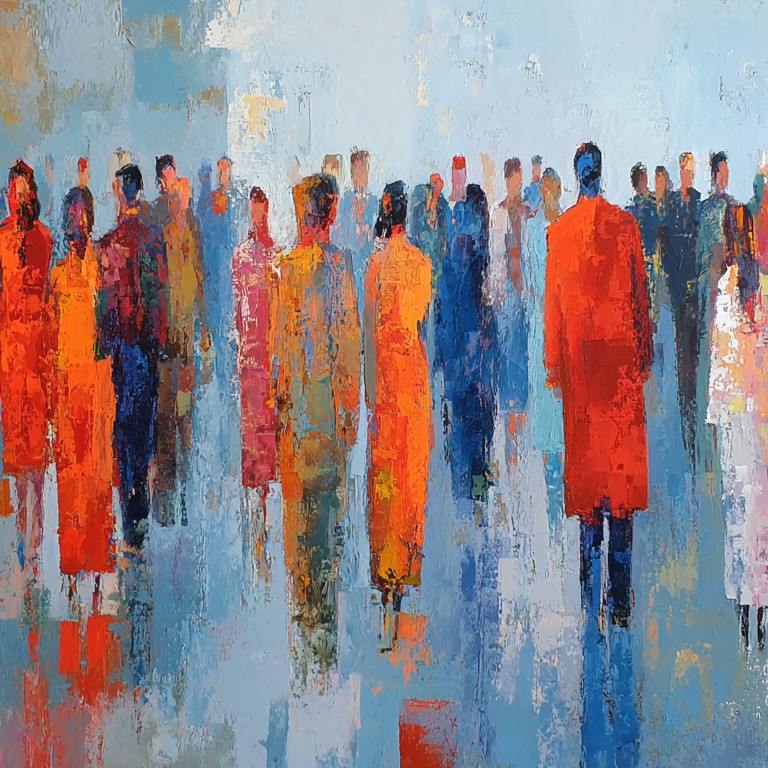Aid cuts will also hit Norway
Norway closes its eyes while the world burns. It is both unpatriotic and short-sighted.

Ki-generated illustration from Midjourney
Main moments
Last year, Norway earned incredible NOK 1285 billion on oil and gas, around 1000 billion more than expected. This is mainly due to Russia's war against Ukraine. Sky-high energy prices provide super-profits for us, at a high cost to our allies.
With new 984 billion this year Norway's total super profit over two years will be around 1700 billion, and more than the total Marshall aid from the United States to Europe after World War II. This is of historic proportions. Now it's our turn to be able to write history.
Norway's situation is in stark contrast to the rest of the world. There is war in Europe and in the Middle East, with millions of people fleeing. The wars have led to increased commodity prices, which, together with high inflation, are hitting the poorest hard. More than 700 million people live in extreme poverty, and the number of people in acute food insecurity is more than doubled since before the pandemic. At the same time, the climate and natural crisis is growing in scope. Today's too crises are of historical proportions, as several business leaders wrote in DN last year.
“The big tasks we solve best together” was the Labour Party's mantra in the election campaign two years ago. More community. Minor differences. “Now it's the turn of ordinary people,” said Jonas Gahr Støre.
Ordinary people in Norway, however, are not common in the world context. If you have an average income in Norway, you are among the two percent richest in the world, even when adjusting for purchasing power. The median income in the world is around NOK 30,000 per year, and ten per cent live on less than NOK 25 per day.
Nevertheless, Norwegian contributions to the fight against global inequality are marginal compared to the needs — and with what Norway can afford. In next year's state budget, the Støre government has again proposed that Norway should not meet the 1% aid target. Last year they were saved by SV, but in this year's budget negotiations SV believed that the government should take responsibility itself.
In this weekend's budget agreement, therefore, not a single extra penny came to the world's poorest, even after moving at £22 billion in total.
Where did the desire for more community and solidarity go? What happened to the ambition to solve the big tasks together?
Not only should Norway afford to provide more for solidarity reasons, but in the long term, more aid can also serve Norway as a nation.
Norway's future prosperity and how we deal with global challenges are inextricably linked. In May, a government-appointed committee of experts came up with the report”Investing in a shared future“. It recommends, among other things, that: “aid should not [be] understood solely as gifts, but as investments in a common future”. The world is long since globalized, and what happens out there also affects us here at home.
Several experts share this view. In a statement earlier this year wrote the government's Advisory Committee for Fiscal Analyses, then chaired by Steinar Holden, that: “Some of the challenges facing the world may have a greater impact on the future welfare of Norway's population than the size of the Oil Fund will have.”
With nearly NOK 16,000 billion invested in the rest of the world, including a 1.5 percent stake in all the world's listed companies, Norway has an economic interest in dealing well with global challenges. A one percent fall in the world economy would likely cost the Oil Fund a triple-digit number of billions, and the fund is too big for it to diversify away from different types of risks, such as climate risks.
To reduce the risk, we simply have to do something about the problem.
More from Langsikt

Input to the strategy for Norway's cooperation with the World Bank
Norway should see its cooperation with the World Bank, particularly IDA, as more than an aid tool - it should be part of our long-term strategy to contribute to a stable and resilient world with less inequality and less poverty. Here are nine inputs on how.

Norwegian aid can accomplish much more if it is prioritized correctly. Here are suggestions on how
Below are two proposals for structural measures in the aid budget, and then two concrete budget amendments that can save free up room for action for new initiatives (a total of NOK 1 billion in 2026).

Input to Development Minister in Light of Global Aid Cuts
Global aid cuts must have consequences for Norwegian priorities.

The death of the aid percentage: An analysis of what Norwegian aid goes to
Never before has the share of Norwegian aid going to poverty reduction and development been lower.